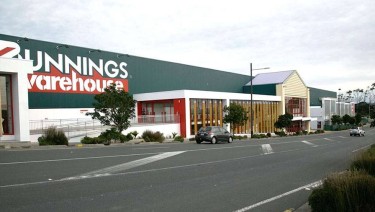Quick Takes of the Week to June 27
In case you missed it: News bites for the week.
In case you missed it: News bites for the week.
 Fletcher Building has settled for less on its claim for cost recovery on the Puhoi to Warkworth motorway and will book a $16.4 million loss on the receivable for the year to June.
Fletcher Building has settled for less on its claim for cost recovery on the Puhoi to Warkworth motorway and will book a $16.4 million loss on the receivable for the year to June.
In a statement provided to the ASX on Friday when the NZX was closed for the Matariki holiday, Fletcher said the loss “relates to revenue recognised over the life of the P2W project and has not previously been anticipated in prior commentary regarding the FY25 earnings outlook”.
Fletcher and its 50% joint venture partner Acciona and sought to recover excess costs incurred in building the motorway from NZ Transport Agency and the Northern Express Group.
The road was opened in June 2023, 18 months late, partly because of delays caused by the Covid pandemic.
Fletcher managing director Andrew Reding said the settlement “represents further progress in closing out the legacy project issues that have absorbed significant management time and cost”.
The Government’s Regional Infrastructure Fund will provide loans of up to $28.1m to support solar energy projects in Rakiura/Stewart Island, Hawke’s Bay, and the Bay of Plenty, according to Regional Development Minister Shane Jones and Energy Minister Simon Watts. They said the initiatives aim to boost energy resilience, cut diesel dependency, and create up to 150 construction jobs across the regions.
The largest of these projects, on Rakiura, is projected by the Government to significantly reduce diesel use, supporting economic growth in aquaculture, tourism, and hospitality, while similar benefits in energy security and economic resilience are expected from the solar developments in Hawke’s Bay and the Bay of Plenty.

David Seymour.
Associate Finance Minister David Seymour says overseas investment decisions are now being made in half the time, following his ministerial directive to Land Information New Zealand last year. Seymour said the letter set out his expectation that LINZ would process 80% of applications in half the statutory timeframe. So far, it had processed 88% of applications in half the time. “The average timeframe has reduced from 71 working days in the last financial year to 28 working days this financial year.” He said this week would also see the first reading of the Overseas Investment (National Interest Test and Other Matters) Amendment Bill, which would consolidate and simplify the process for less-sensitive assets. “International investment is critical to ensuring economic growth. It provides access to capital and technology that grows New Zealand businesses, enhances productivity, and supports high-paying jobs,” Seymour said.
The private sector is more pessimistic about the employment outlook and job security, compared with the public sector.
The latest Westpac-McDermott Miller Employment Confidence Index rose by 0.5 points to 88.8 in the June quarter. A reading under 100 indicated that pessimists outnumbered optimists.
The index remains close to lows from the first Covid-19 lockdown in early 2020.
Senior economist Michael Gordon said a perceived lack of job opportunities remained the key concern. Notably, confidence among private sector employees declined in this survey, compared with counterparts in the public sector.
McDermott Miller market research director Imogen Rendall said private sector employees were more pessimistic about the current job market and future opportunities. “They continue to remain concerned for their personal job security.”
The survey was conducted earlier this month with a sample size of 1550 people.

Chlöe Swarbrick.
The Green Party has received legal advice saying the coalition Government’s commitment to invest up to $200m in new gas fields breaches a trade agreement it signed last November. Under the Agreement on Climate Change, Trade, and Sustainability (ACCTS) – which includes New Zealand, Iceland, Costa Rica, and Switzerland – subsidising fossil fuels is prohibited. Subsidisation can only happen under specific exemptions within the agreement, which the Greens’ legal advice from a KC says is not met by the Government’s policy. Under its policy, the Government is prepared to co-invest up to 10-15% of the cost of developing new gas fields. Greens co-leader Chlöe Swarbrick said there was no grey area here. “This is a blatant violation of our international commitments. If the Government cared about energy security or regional resilience, they would be investing in distributed renewable energy," she said.
NZX-listed steel company Vulcan Steel has been granted another six months of banking covenant relief by its lenders.
The company was granted a relaxation on its covenants in October 2024, which was originally due to expire on December 31, 2025.
But the company announced on Tuesday that this had been extended until the end of June 2026.
“Extending the covenant relief provides the balance-sheet flexibility to navigate the current demand environment while continuing to invest in customer-facing initiatives,” Vulcan chief executive Rhys Jones said.
The company said the additional flexibility would put Vulcan in a better position to meet customer demand when it increases in Australia and New Zealand over the next 12 months.
It also said it continues to operate with strong liquidity and has no debt facilities maturing until 2027 financial year.


Sign up to get the latest stories and insights delivered to your inbox – free, every day.